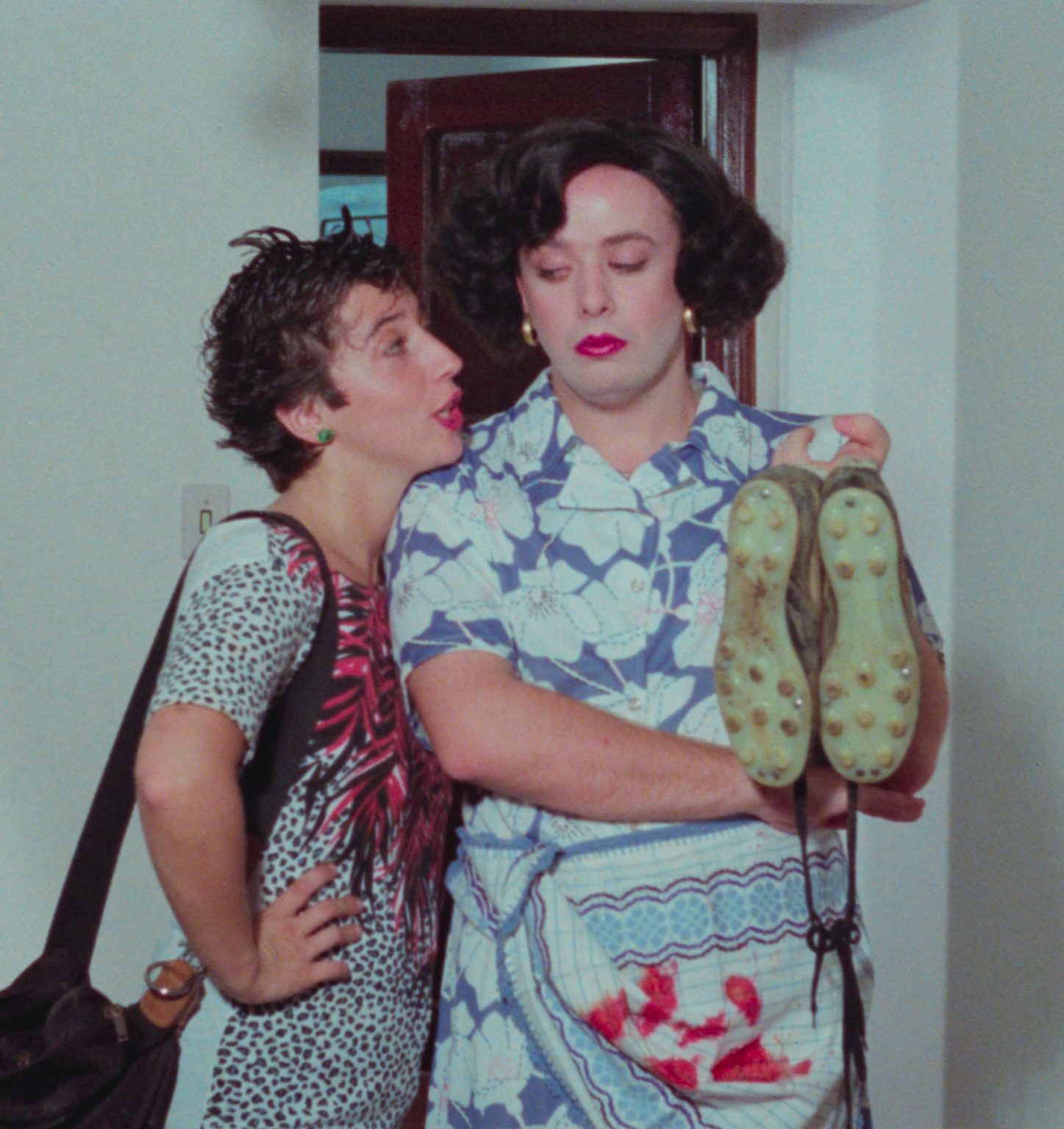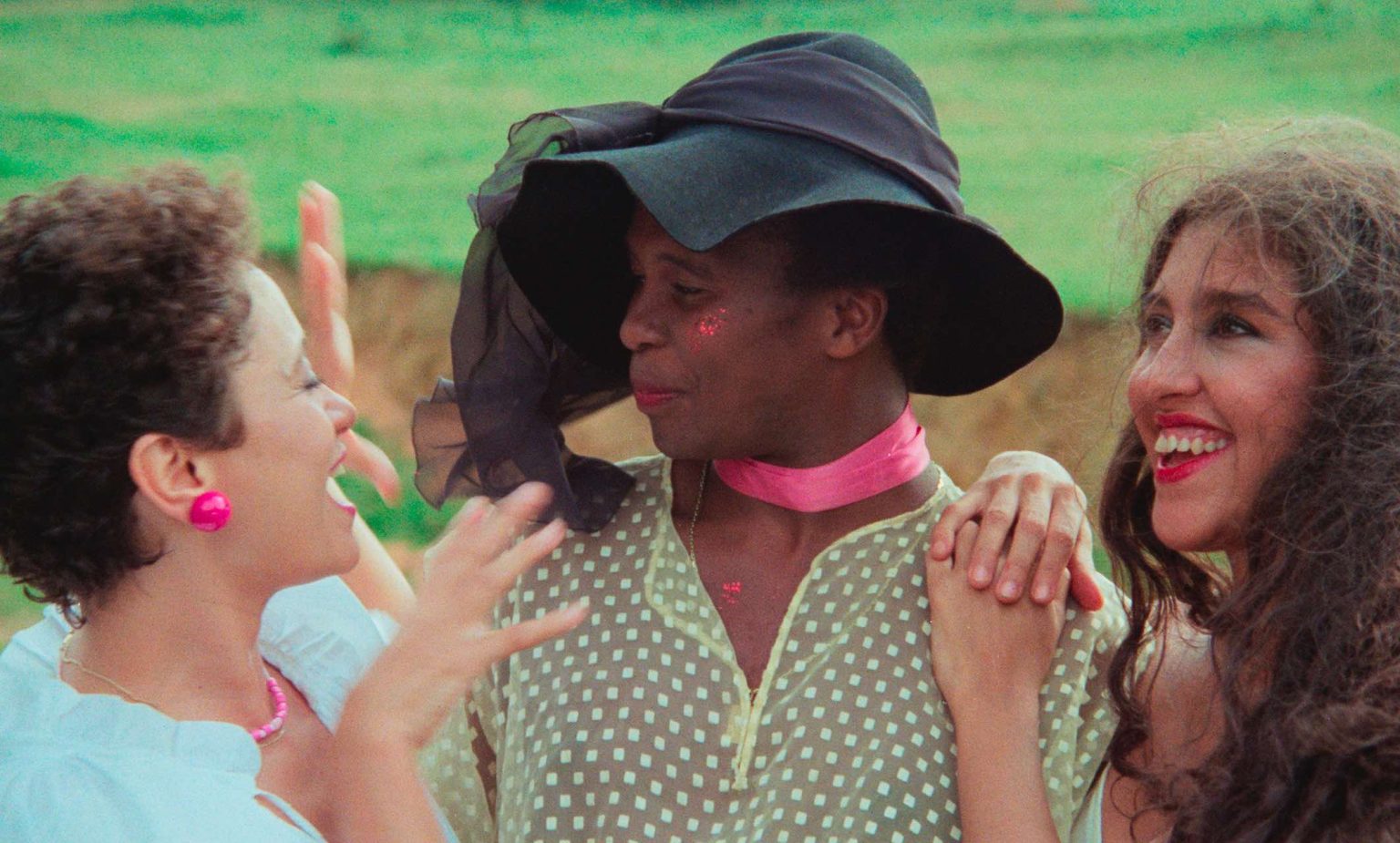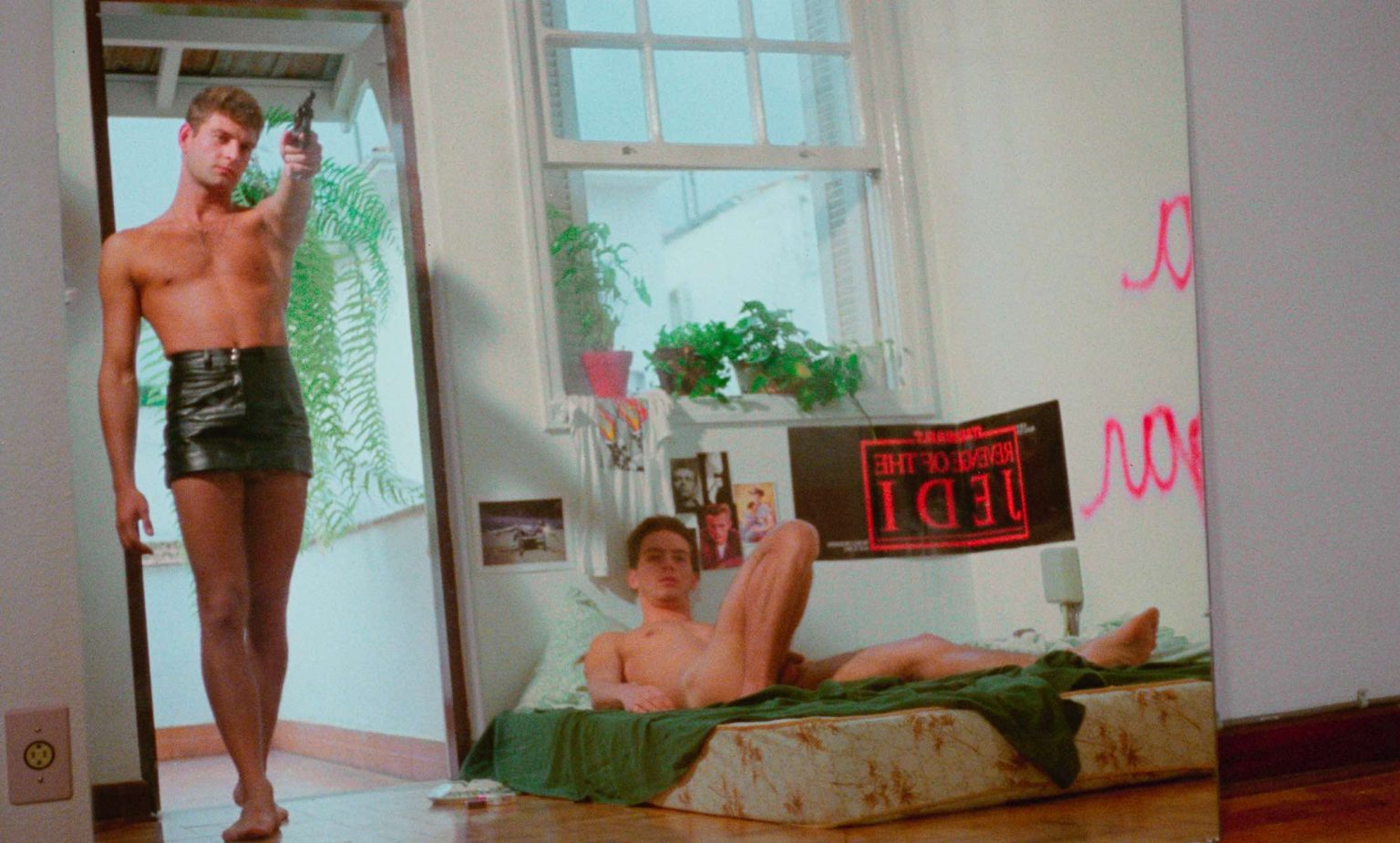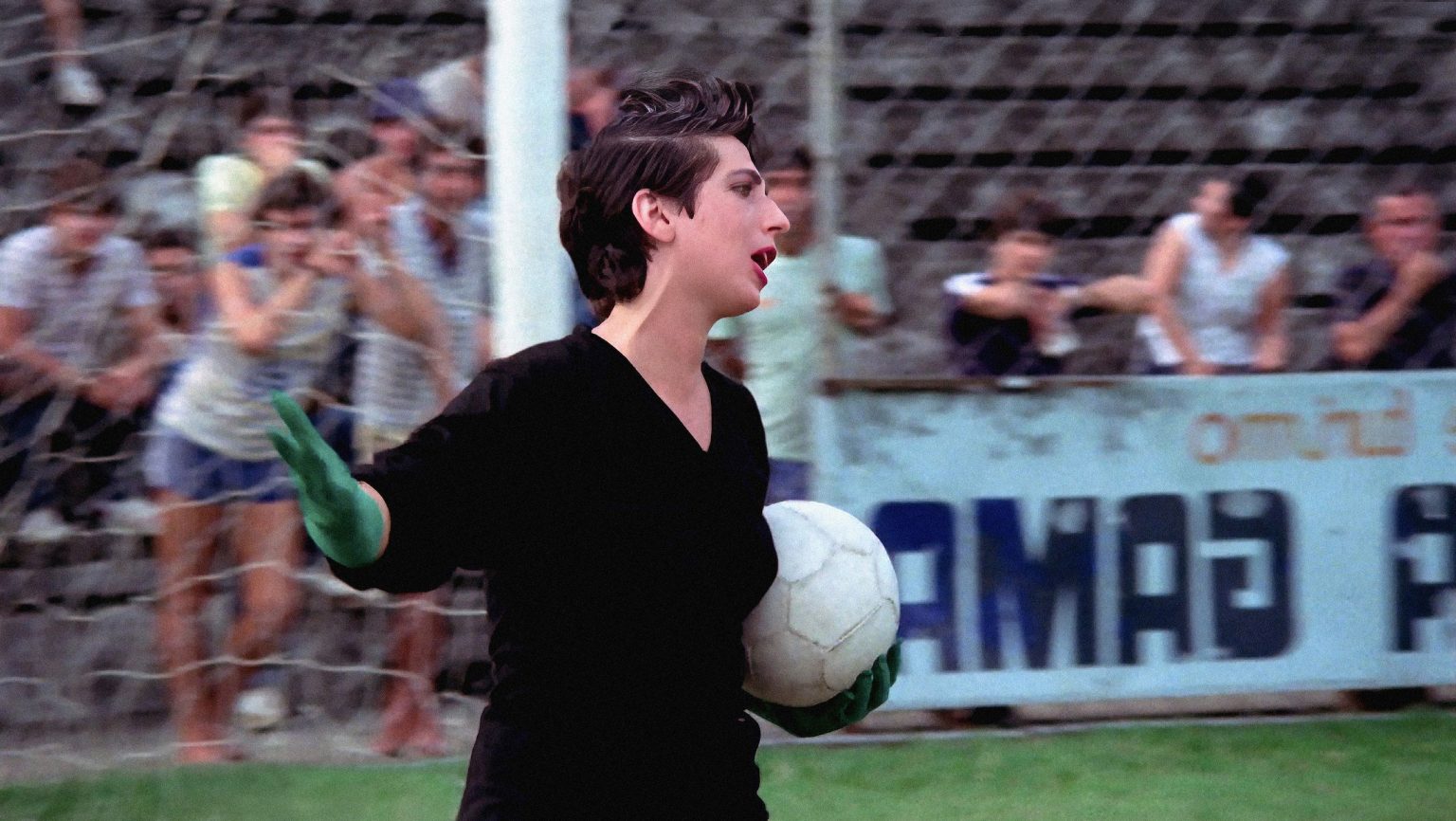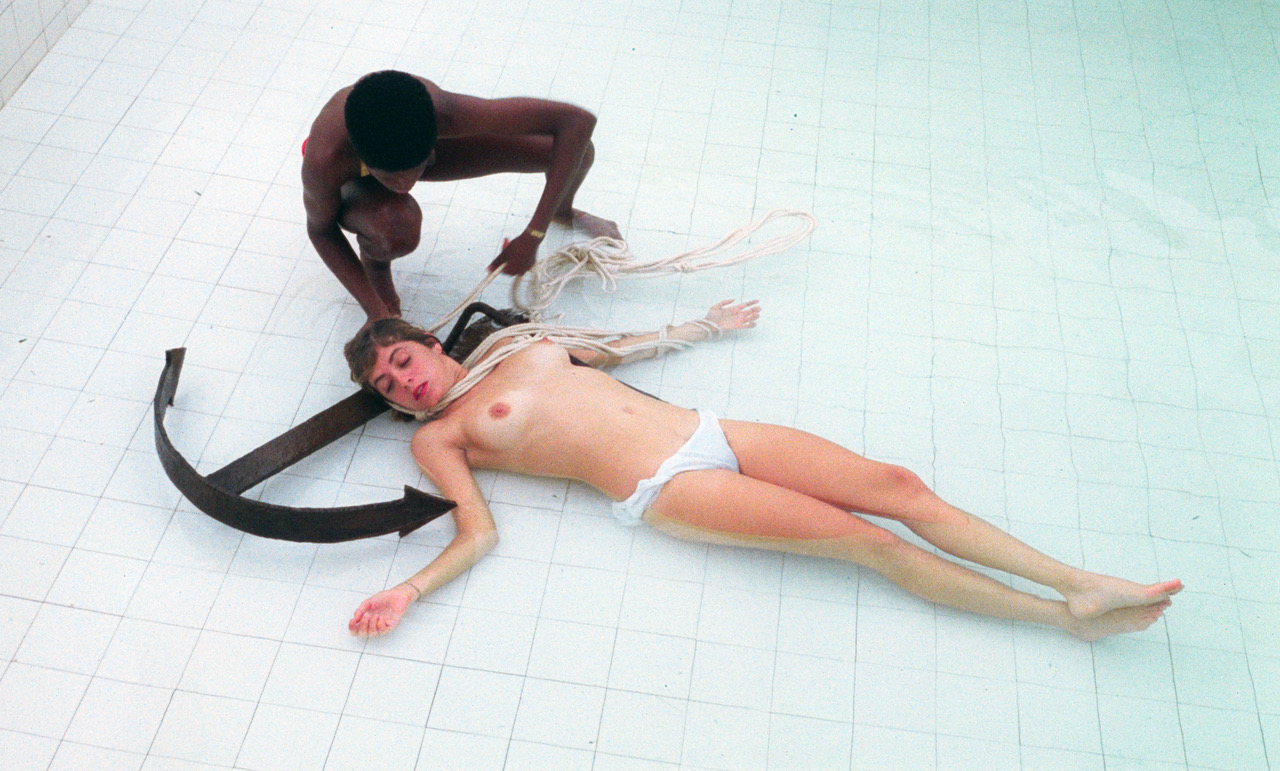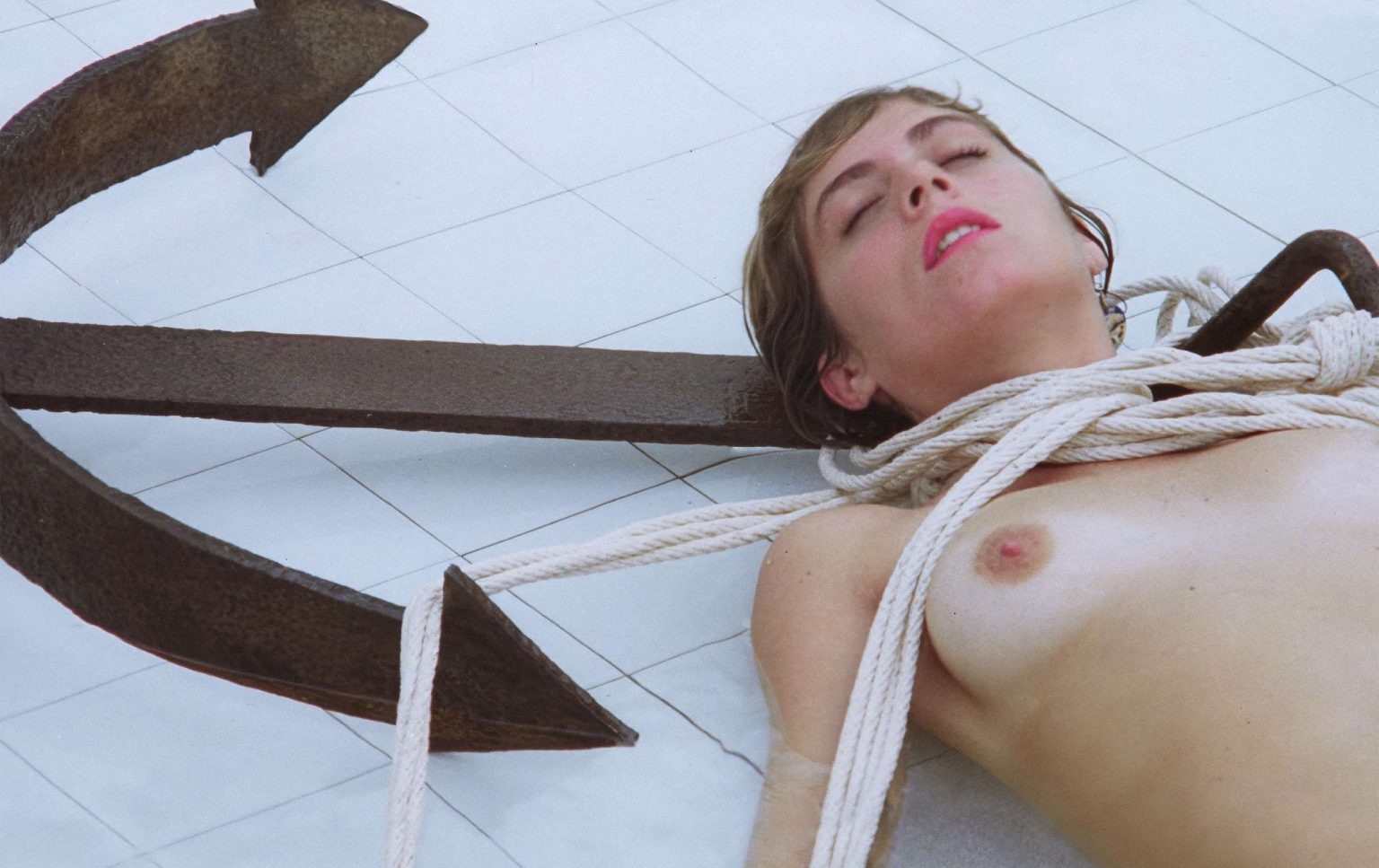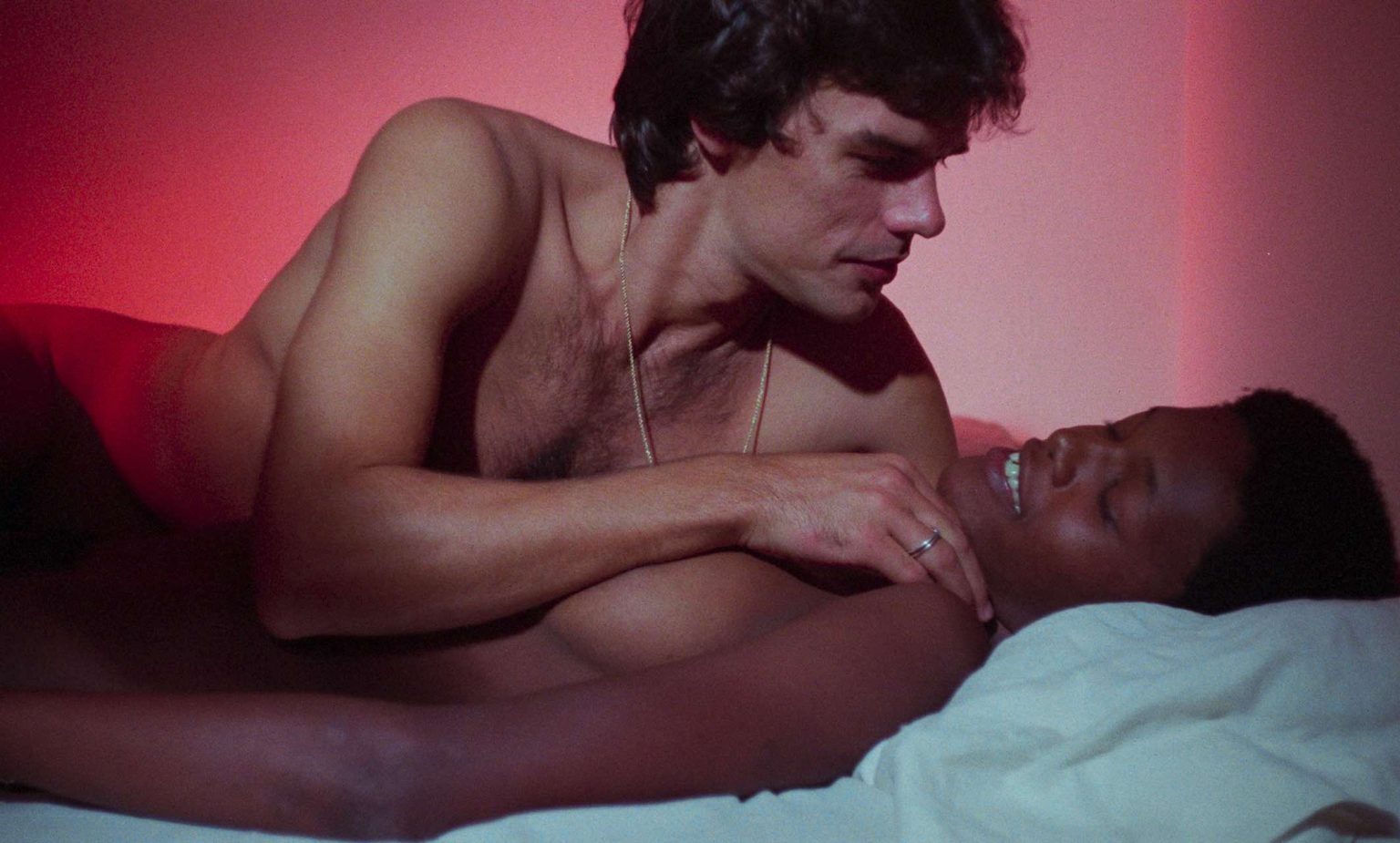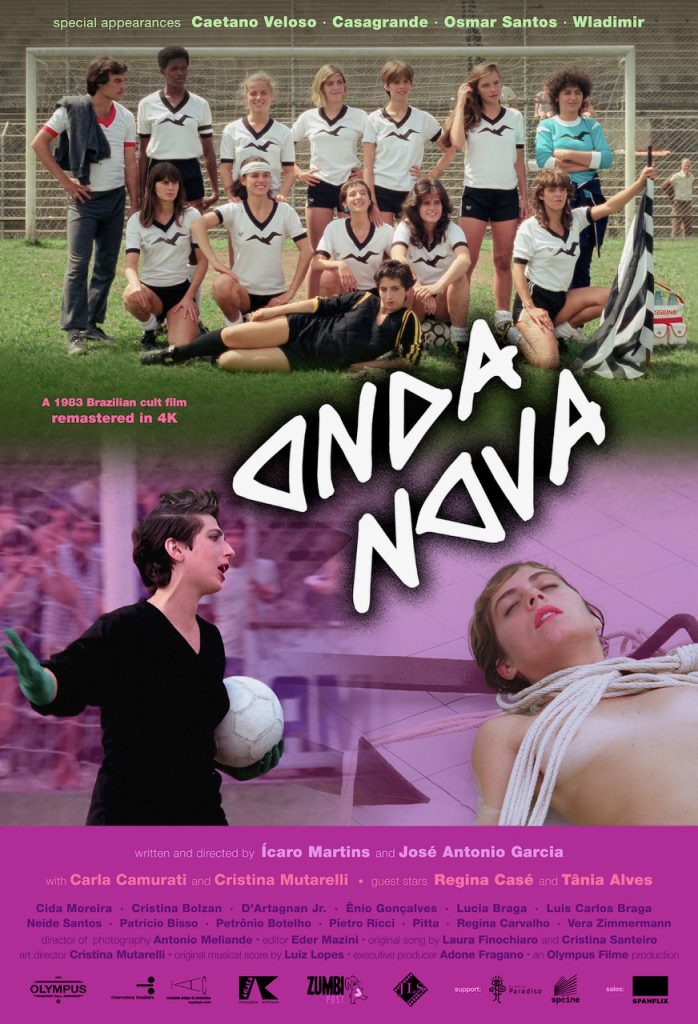
Onda Nova
by Ícaro (Francisco C.) Martins & José Antonio Garcia
Carla Camurati and Cristina Mutarelli; Cida Moreira, Cristina Bolzan, D’Artagnan Jr, Ênio Gonçalves, Lucia Braga, Luis Carlos Braga, Neide Santos, Patrício Bisso, Petrônio Botelho, Pietro Ricci, Pita, Regina Carvalho, Vera Zimmermann
Regina Casé and Tânia Alves
Caetano Veloso, Casagrande, Osmar Santos, Wladimir
Ícaro (Francisco C.) Martins & José Antonio Garcia
Adone Fragano and José Augusto Pereira de Queiroz
Olympus Filme
Antonio Meliande
Eder Mazini
Cristina Mutarelli
Theme: Laura Finochiaro and Cristina Santeiro; Original soundtrack: Luiz Lopes
Adone Fragano
José Antonio Garcia (1955 – 2005) was a Brazilian filmmaker. A member of the São Paulo cinema generation of the 1980s, known among São Paulo critics as the “New São Paulo Cinema”, he attended the scriptwriting and directing courses at USP’s School of Communication and Arts between 1973 and 1976, where he directed some experimental short films, such as Hoje tem futebol (1976), Marilyn Tupi (1977) and Tem bola na escola (1979), before making his feature film debut in partnership with Ícaro (Francisco C.) Martins. His solo film, O Corpo (1991), based on the short story “A Via Crucis do Corpo”, by Clarice Lispector, with Marieta Severo, Claudia Jimenez and Antonio Fagundes, won awards at the Brasilia (Brazil) and Cartagena (Colombia) Festivals. He also directed the feature film Minha Vida em Suas Mãos, produced by and starring actress Maria Zilda Bethlem. He died in Rio de Janeiro in 2005, after premiering a play he directed based on Clarice Lispector’s works: “Crônicas para não esquecer e A Pecadora Queimada e os Anjos Harmoniosos”.
Ícaro, or Francisco C., Martins (1954), started out in the “New São Paulo Cinema”, writing and directing, together with José Antonio Garcia, O Olho Mágico do Amor (1982), Onda Nova (1983) and Estrela Nua (1985), winning several awards, such as APCA, Gov. do Estado de SP, among others. He collaborated on the scripts for TV Cultura’s renowned series “Castelo Rá-Tim-Bum” and was the screenwriter for André Ristum’s Tempo de Resistência (2003). Together with Helena Ignez, he directed Luz nas Trevas – A volta do Bandido da Luz Vermelha (2010), shown at the 63rd Locarno Film Festival. Director and co-writer of Maria – Don’t Forget I Come From the Tropics, an official selection of the “It’s All True” festival in 2017. In the theatre, he has directed virtual shows such as” The Grand Inquisitor” by Fyodor Dostoevsky, Diana, by Celso Frateschi and Horácio, by Heiner Müller (Teatro Ágora, 2021/22); In 2022, at SESC Consolação, he collaborated with Vivien Buckup to direct Chekhov’s The Swan Song and, together with the author Celso Frateschi, directed the play Gongorê.
Locarno Film Festival, Queer Lisboa, Queer Porto, Cinema Queer Stockholm, 48th São Paulo International FF (2024); 39th BFI Flare, 16th LGBT+ Poland, 26th Jeonju International FF.


